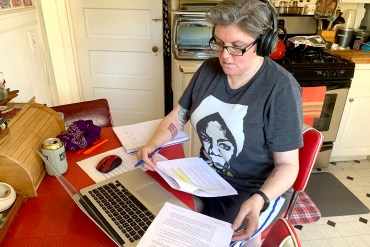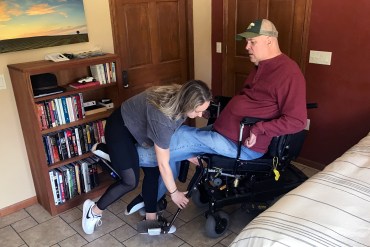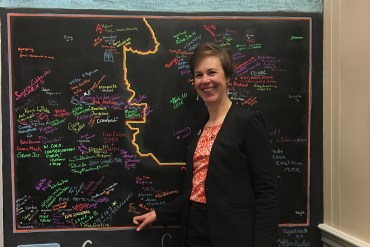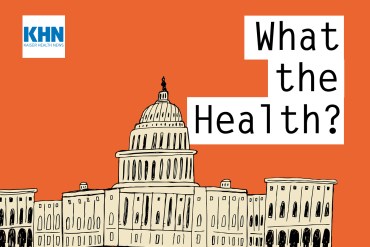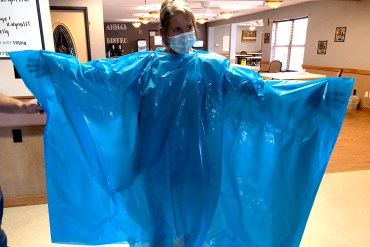California Hits Up Libraries and Tax Offices To Recruit 20,000 New Disease Detectives
As California begins one of the largest contact-tracing training programs in the country, many of the new recruits will be librarians: who are known to be curious, tech-savvy and really good at getting people they barely know to open up.
Pandemic Upends The Lives Of People With Disabilities — And Of Their Caregivers
Wisconsin already faced a shortage of caregivers who offer crucial health services and independence to their clients. Then the pandemic struck. In a survey of nearly 500 Wisconsinites with disabilities and older adults, every respondent said the pandemic had disrupted their caregiving service.
Expertos vinculan el aumento de casos de COVID en Arizona con la reapertura
Arizona declaró el fin de la cuarentena a principios de mayo. Y sus negocios abrieron dos semanas después. Expertos en salud dicen que el aumento de casos es por esa reapertura precoz.
Wealthy Hospital Taps Craft Breweries For Aid To Buy Masks, Gloves
Although the federal government has poured billions of dollars into hospitals to defray their losses from the coronavirus outbreak, new streams of fundraising have emerged — including health worker-themed beer that adds “a drop in the bucket.”
Health Experts Link Rise In Arizona COVID Cases To End Of Stay-At-Home Order
Arizona is a coronavirus hot spot, with the average of daily cases more than doubling from two weeks ago.
At A Time Of Great Need, Public Health Lacks ‘Lobbying Muscle’
Public health officials are asking for more money in California’s state budget. But unlike some rich and powerful health care interests, they don’t have an army of lobbyists to curry favor with lawmakers.
Andre Guest was just fine one day. The next, he was fighting for his life.
White House Left States On Their Own To Buy Ventilators. Inside Their Mad Scramble.
Although laws prohibit price gouging on precious resources in times of emergency, states have been forced to compete for a share of the nation’s stockpile of ventilators — used to treat the sickest COVID patients — or pay top dollar on sideline deals. With quality and quantity control lacking, what happens when the pandemic’s second wave hits?
KHN senior correspondent Jordan Rau spins through this week’s essential health care news.
Public Health Officials Face Wave Of Threats, Pressure Amid Coronavirus Response
Public health officials are confronting growing pressure — and threats — across the country as the backlash to the coronavirus response continues. At least 27 state and local health leaders have resigned, retired or been fired since April across 13 states.
Si perdiste tu seguro de salud por la crisis de COVID-19, tienes opciones
Algunos pueden adquirir un seguro de salud bajo ACA apelando a un período especial de inscripción. Otros descubren que pueden aplicar para Medicaid. Hay alternativas pero el tiempo corre.
If You’ve Lost Your Health Plan In The COVID Crisis, You’ve Got Options
But some of those options, like special enrollment periods, are time-sensitive.
Health Workers Resort To Etsy, Learning Chinese, Shady Deals To Find Safety Gear
The shortages are so dire that nursing homes and other health centers are going to extraordinary lengths for masks, gowns and essential materials.
COVID-19 Batters A Beloved Bay Area Community Health Care Center
Health clinics in isolated African American communities in the San Francisco Bay Area provide crucial services to neglected populations. But like thousands of other community clinics around the nation, their finances have been wrecked by the pandemic shutdown.
KHN’s ‘What The Health?’: Say What? The Spread Of Coronavirus Confusion
Months into the COVID-19 pandemic, the public seems more confused than ever. And health officials still are not all on the same page; this week the World Health Organization had to walk back an official’s statement about how commonly the virus is spread by people without symptoms. Margot Sanger-Katz of The New York Times, Paige Winfield Cunningham of The Washington Post and Mary Ellen McIntire of CQ Roll Call join KHN’s Julie Rovner to discuss this and more. Also, Rovner interviews Michael Mackert, a professor and health communications expert at the University of Texas-Austin, about how health information can best be translated to the public.
Federal Help Falters As Nursing Homes Run Short Of Protective Equipment
More than 3,000 nursing homes reported less than a week’s worth of supplies, and 653 said they had run out entirely at some point. Stopgap FEMA equipment has not reached many facilities, and packages that have arrived have fallen short of promises.
Using Stories To Mentally Survive As A COVID-19 Clinician
The practice of narrative medicine helps health care professionals hear the life stories behind a patient’s immediate complaints. Some doctors are finding that these skills also provide an alcove of needed reflection amid the pandemonium of COVID-19.
Fighting COVID And Police Brutality, Medical Teams Take To Streets To Treat Protesters
Off-duty medical professionals joined protests in Denver and elsewhere sparked by George Floyd’s death to treat injured protesters, risking injury themselves.
A Family With Five Doctors — And Two COVID Deaths
A New Jersey family tried everything they could to save their father and sister, but faced shortages of protective gear and grim hospital conditions.
At-Home Care Designed For COVID Likely Here To Stay At Cleveland Hospital
A public hospital in Cleveland has been trying to keep COVID patients out of its beds. It tried a number of innovations for developing better communication — even better relationships — with patients. Officials think this groundwork helped keep the outbreak at bay — and should be the new business model going forward.



